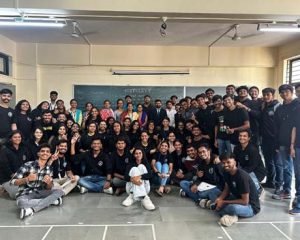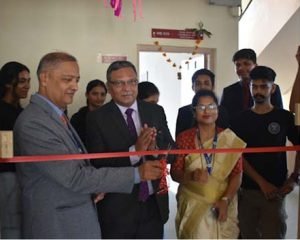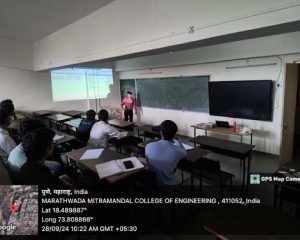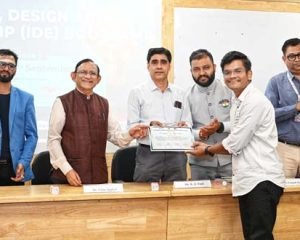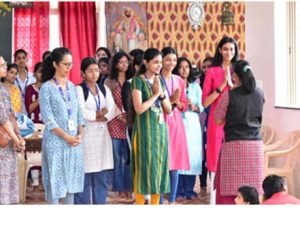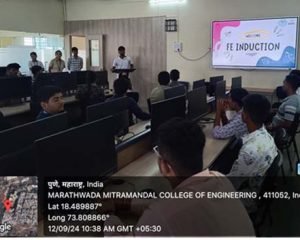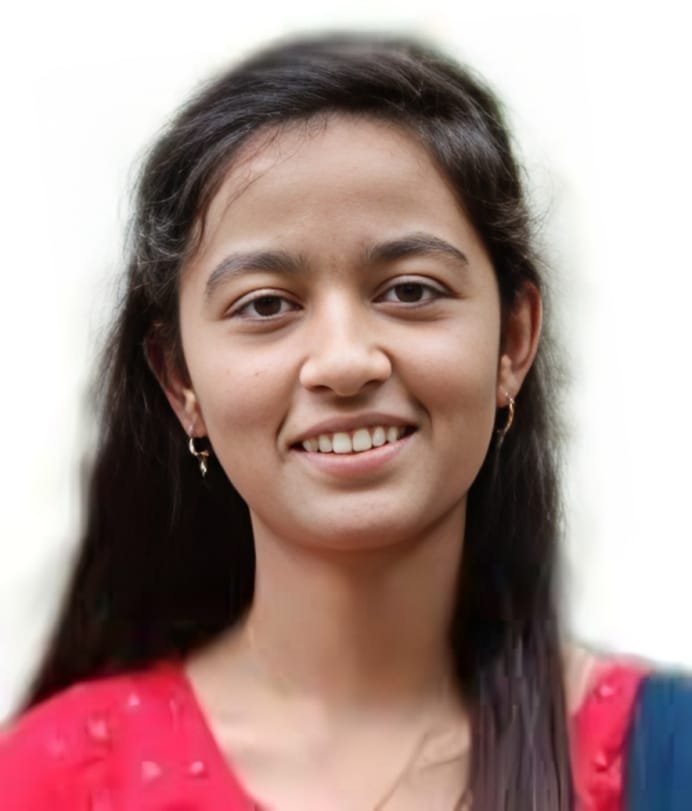Artificial Intelligence and Data Science
Home » UG Programme » AI & DS » About Department
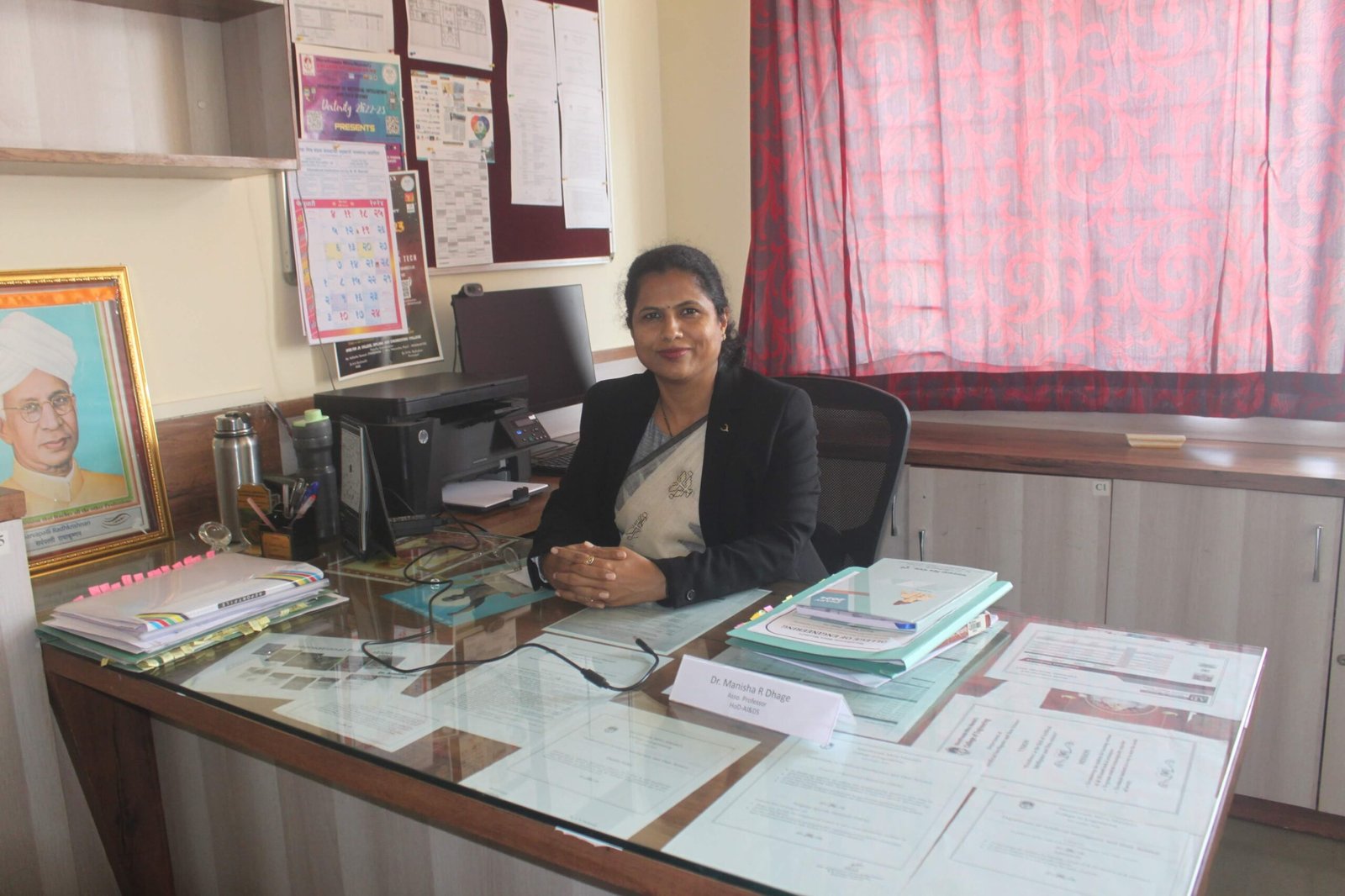
Head of Department of Artificial Intelligence and Data Science Engineering
The department of AI & DS is established in the Academic Year 2021-2022. This is a 4-year degree course approved by AICTE, New Delhi under Savitribai Phule Pune University (SPPU). The department is offering undergraduate programs with an intake of 180 under autonomous status. Artificial Intelligence and Data Science is an emerging interdisciplinary field that integrates scientific methodologies from statistics, cognitive science, and information science. This specialized domain focuses on the development of data-driven solutions, advanced data visualization techniques, and big data analytics. It encompasses the principles of machine learning and deep learning to build intelligent models for addressing complex computational and real-world challenges During the past few years, AI and Data Science have emerged as one of the most high-growth, dynamic, and lucrative careers in technology.
The Bachelor of Technology in Artificial Intelligence and Data Science is a skill-oriented course based on practical and application-based research. It offers a curriculum that is continuously updated to align with the evolving needs of the industry. We have designed our syllabus to strike a balance between professional knowledge and personal skills. Our students engage in projects, workshops, internships and competitions that enhance their practical skills and prepare them for future challenges.
Top most AI companies
- Amazon
- Apple
- Banjo
- DJI
- IBM
- OpenAI
- DataVisor
- Intel
- Microsoft & Many More
AI&DS Application Domain
- E-commerce
- Healthcare
- Banking
- Education
- Sports
- Agriculture
- Construction
Department Highlights
- Pool of Highly qualified and experienced faculty members
- Industry collaboration
- Industry standard computing labs of Python, Machine Learning, C/C++, Advance Java, Data Analytics, Web Technology, Network, RDBMS, Image processing along with specialized lab in AR-VR
- International placements and Internships
- Student - Mentor System with more focus on Problem Solving Skill Enhancement
- Technical events, Guest lectures, Seminars, Industrial visits,Workshops
- Skill Development Programs
- Well-equipped laboratories with advance systems, library and modern classrooms equipped with audio-visual aids and with connectivity in college as well as in hostel
- Professional mentor to learn Foreign Languages : Japanese and German Language
- Design Thinking Innovation Practice for students
- Faculty and student participation in National and International Technical events
Vision
Emerge globally as a leading center for Artificial Intelligence and Data Science education, contributing to sustainable development.
Mission
In alignment with the institute’s mission, the AI&DS department is committed to:
- M1: Equip students with advanced Artificial Intelligence knowledge for industry- ready skills.
- M2: Cultivate a culture of research and entrepreneurship to drive innovation and problem-solving.
- M3: Inculcate social and professional values for ensuring holistic development.
- M4: Foster a lifelong learning that supports upskilling and global engagement.
Program Educational Objectives (PEOs)
Graduates from our program will:
- PEO1: Apply, analyze, and evaluate computing skills for problem-solving.
PEO2: Engage in continuous learning through professional development, certifications, emerging technologies in Artificial Intelligence and Data Science.
PEO3: Demonstrate ethical behaviour, effective communication and leadership skills in diverse environments.
PEO4: Build successful careers in industry or entrepreneurship, demonstrating competence and adaptability in a dynamic global environment.
Knowledge and Attitude Profile (WK)
- WK1: A systematic, theory-based understanding of the natural sciences applicable to the discipline and awareness of relevant social sciences.
- WK2: Conceptually-based mathematics, numerical analysis, data analysis, statistics and formal aspects of computer and information science to support detailed analysis and modelling applicable to the discipline.
- WK3: A systematic, theory-based formulation of engineering fundamentals required in the engineering discipline.
- WK4: Engineering specialist knowledge that provides theoretical frameworks and bodies of knowledge for the accepted practice areas in the engineering discipline; much is at the forefront of the discipline.
- WK5: Knowledge, including efficient resource use, environmental impacts, whole-life cost, re-use of resources, net zero carbon, and similar concepts, that supports engineering design and operations in a practice area.
- WK6: Knowledge of engineering practice (technology) in the practice areas in the engineering discipline.
- WK7: Knowledge of the role of engineering in society and identified issues in engineering practice in the discipline, such as the professional responsibility of an engineer to public safety and sustainable development.
- WK8: Engagement with selected knowledge in the current research literature of the discipline, awareness of the power of critical thinking and creative approaches to evaluate emerging issues.
- WK9: Ethics, inclusive behavior and conduct. Knowledge of professional ethics, responsibilities, and norms of engineering practice. Awareness of the need for diversity by reason of ethnicity, gender, age, physical ability etc. with mutual understanding and respect, and of inclusive attitudes.
Programme Outcomes (POs)
A Graduate of the Computer Engineering Program will be able to
PO1: Engineering Knowledge: Apply knowledge of mathematics, natural science, computing, engineering fundamentals and an engineering specialization as specified in (WK1 to WK4) respectively to develop the solution of complex engineering problems.
PO2: Problem Analysis: Identify, formulate, review research literature and analyze complex engineering problems reaching substantiated conclusions with consideration for sustainable development. (WK1 to WK4)
PO3: Design/Development of Solutions: Design creative solutions for complex engineering problems and design/develop systems/components/processes to meet identified needs with consideration for the public health and safety, whole-life cost, net zero carbon, culture, society and environment as required. (WK5)
PO4: Conduct Investigations of Complex Problems: Conduct investigations of complex engineering problems using research-based knowledge including design of experiments, modelling, analysis & interpretation of data to provide valid conclusions. (WK8).
PO5: Engineering Tool Usage: Create, select and apply appropriate techniques, resources and modern engineering & IT tools, including prediction and modelling recognizing their limitations to solve complex engineering problems. (WK2 and WK6)
PO6: The Engineer and The World: Analyze and evaluate societal and environmental aspects while solving complex engineering problems for its impact on sustainability with reference to economy, health, safety, legal framework, culture and environment. (WK1, WK5, and WK7).
PO7: Ethics: Apply ethical principles and commit to professional ethics, human values, diversity and inclusion; adhere to national & international laws. (WK9)
PO8: Individual and Collaborative Team work: Function effectively as an individual, and as a member or leader in diverse/multi-disciplinary teams.
PO9: Communication: Communicate effectively and inclusively within the engineering community and society at large, such as being able to comprehend and write effective reports and design documentation, make effective presentations considering cultural, language, and learning differences
PO10: Project Management and Finance: Apply knowledge and understanding of engineering management principles and economic decision-making and apply these to one’s own work, as a member and leader in a team, and to manage projects and in multidisciplinary environments.
PO11: Life-Long Learning: Recognize the need for, and have the preparation and ability for i) independent and life-long learning ii) adaptability to new and emerging technologies and iii) critical thinking in the broadest context of technological change. (WK8)
Programme Specific Outcomes (PSOs)
Upon successful completion of the program, graduates will be able to:
PSO1: Demonstrate the ability to understand, apply, and develop fundamental computer programs and AI and Data Science solutions using key concepts such as data analytics, machine learning, deep learning and natural language processing.
PSO2: Develop and implement AI and data-driven models by critically analyzing complex problems, designing effective solutions, and evaluating their impact across diverse real-world applications.
PSO3: Utilize emerging AI and Data Science technologies to innovate, promote entrepreneurial ventures, and develop successful careers in industry and research, while embracing lifelong learning and higher education.
Toppers List 2024-25
First Year
Second Year



Third Year
Our Recruiters





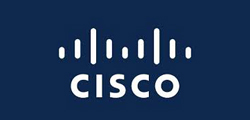







AI & DS Engineering
Our Recruiters














